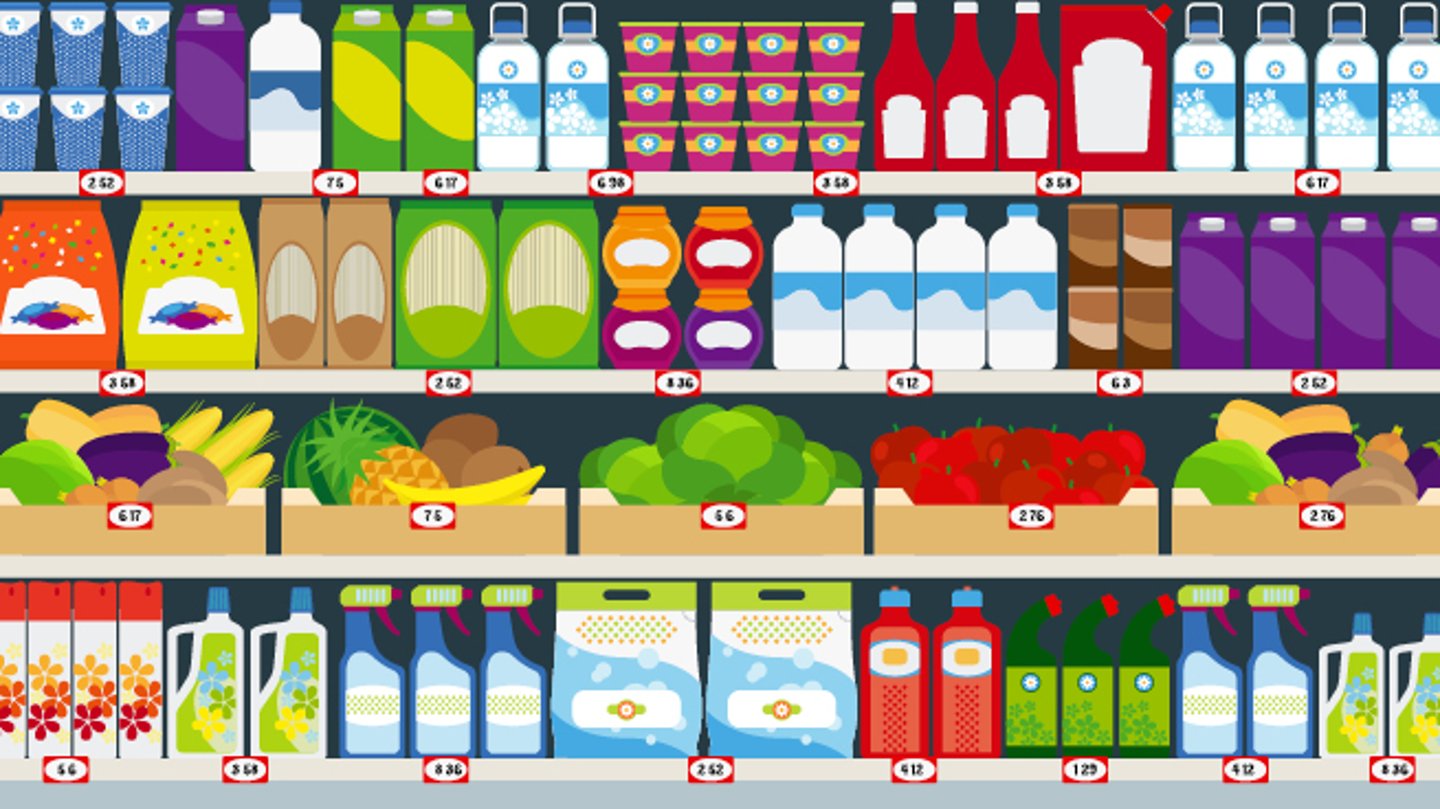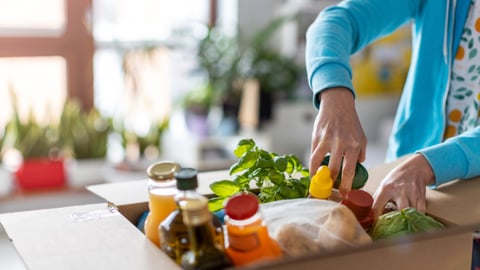Amid high inflation and supply chain issues, private label powers up
Sales of private-label brands have only one direction to go, and that is up. Canadian grocers need only look overseas for proof, says Marie-France Gibson, vice-president, corporate brands at Metro.
“There is more opportunity to increase private label, especially when we look at our European counterparts with 30%- plus share in private label,” she says.
Gibson adds that at her company, private label has seen “strong sales performance and growth” in the last few years and now represents more than 20% of Metro’s total store sales. With consumer adoption of private label on the rise, “now is more important than ever to make sure we have the right products at the right price.”
Grocers have upped their private-label game in recent years, says Sylvain Charlebois, director of the Agri-Food Analytics Lab at Dalhousie University. “I think that’s Loblaws’ legacy,” he says of the retailer’s President’s Choice brand. “They’ve actually been able to convey to the public that you can buy a private-label product and get some quality along with that.” Charlebois estimates private label’s market share for food in Canada is between 17% and 20%.
Canadian shoppers have become more reliant on private label in today’s high inflation environment and there is no sign that sales will slow, says Brian Ettkin, head of strategy and solutions, Canada at Numerator, a market research firm.
In early July, private-label grocery sales were up 11% versus the same period in 2021, he says, and 89% of shoppers have purchased private-label foods at grocery stores at least once a month over the last 12 months.
“We expect consumers to stick with private label post-pandemic and after inflationary pressures ease,” Ettkin says, noting only 18% of private-label buyers plan to return to more premium brands if inflation eases. “National brand shrinkflation and possible formula changes have tilted that value equation in the favour of store brands.”
And it’s a misconception that private label is primarily for lower-income households, Ettkin says. All Canadians buy private label and even in today’s inflationary times, more affluent shoppers are driving the growth in private label, he says. According to Numerator data, high-income Canadians have spent 5% more on private-label grocery, household, and health and beauty goods in 2022 versus last year.
Low-income Canadians are spending 1% less on private label, he says, possibly because “low-income shoppers have already stretched their budgets as far as they can. Inflation is really cutting into their weekly shopping budgets, irrespective of brand.”
According to Ryan Harris, principal, client service for Canada at IRI, private label has not grown as much as would have been expected given the pandemic and today’s inflationary environment. Instead, to find savings, consumers are seeking deals at discount banners.
One frequent mistake grocers make is allowing branded products to drop to the same price as their private-label counterparts, Harris says. As a result, consumers wait until national brands go back on sale and pantry load. “It hurts private label, and it hurts branded products. It’s not a great strategy.”
Given inflationary pressures, “having your own store brand, being able to have better control over your pricing, is mission critical right now in terms of winning over consumers,” says Joel Gregoire, associate director, food and drink at Mintel. It’s “an essential plank in the strategy to drive traffic.”
Gibson notes that Metro asks its suppliers to provide in-depth details about cost increases, a strategy that “has been very useful during this inflationary time, to allow us to compare and challenge a variety of suppliers.”
To gain better control over its offerings and to improve local connections, Calgary Co-op launched its own private-label lines in 2020, including Founders & Farmers and Cal & Gary’s.
“This is a journey for us and we’re only approaching year three,” says Chris Gruber, managing director, private brands at Calgary Co-op. “It takes many, many years to build a brand and the equity and the consumer following and loyalty.” But, “we’re well on our journey to hit our goals.”
Calgary Co-op is constrained by the fact it has only 24 food stores, so it produces smaller quantities of private label than the major grocers, “but we’ve leveraged that by saying let’s be unique and special,” says Ken Keelor, CEO of Calgary Co-op. “Our game is the uniqueness and the Calgary identity that we can bring.”
It does so by using local producers and including Calgary “isms” on packaging that often resonate only with Calgarians. Cal & Gary’s brown organic eggs, for example, say “Ready to crack like your windshield,” which is a cheeky reference to the city’s harsh weather.
Canadians are turning to private label to seek out new flavours and experiences and the days when store brands could merely copy national brands are long gone, Gibson says. “Now, not only do we need to be good quality, but we must also bring more attributes such as better nutrition, trendy flavour profiles, recyclable packaging and locally sourced to attract the attention of today’s consumers.”
Gibson says Metro has launched more than 1,000 private-label products in the last few years. With the growing interest for vegan offerings, Metro has developed plant-based products under its LifeSmart brand. The grocer also added a line of gourmet oat- and coconut milk-based products, and protein and deli products are being developed for its Naturalia product line, which targets consumers seeking simple ingredients.
“The key is to understand consumer trends and needs and data from customer habits, then act on them with innovative and differentiated offers to drive them to our stores,” Gibson says.
Jenny Longo, senior director of private brands at Ontario-based Longo’s, says consumers are seeking niche-type private-label items. At Longo’s, these include legacy items like pasta sauce that she says continues to convert those Italians used to making their own sauces, to premium-quality Curato products imported from Italy.
Consumers are “looking for what’s new and exciting and you can do that through your private label by offering unique offerings” that create a following, says Longo. “It’s fun. You can create those treasure hunt items. Hopefully, they like them, and they come back and find them again.”
Calgary Co-op is also innovating with Cal & Gary’s. At its midtown store, the Co-op opened its first Cal & Gary’s Bistro within the deli area, which contains about 40 seats and sells a range of customized products using private-brand ingredients. “We think we can take this to a whole new level of not just deli or home meal replacement but the broader experience our consumers expect,” Gruber says.
As part of its environmental, social and governance focus, Calgary Co-op recently launched a three-pack of produce bags that allows shoppers to avoid using plastic bags. They contain the catchphrase “Less waste for the city we love most,” and are selling well, Keelor says.
Calgary Co-op also plans to install technology at its head office early next year that will extract carbon emissions from the building, which can then be transformed into natural soap. The Co-op will launch a range of Cal & Gary’s soap made from the office building’s captured carbon “with really neat storytelling behind it,” Gruber says.
Higher tier private brands “offer people a reason to visit your stores to get something they’re going to have a hard time finding somewhere else,” says Mintel’s Gregoire. Another plus is that since grocers don’t have to pay listing fees for private-label brands, the costs associated with launching products is less than for name brands. ‘The cost of failure” for private label is usually lower “because if it doesn’t work you delist it.”
Unlike name brands, private label can cover the store, which is important given that Mintel research shows many consumers are more likely to consider a private-label product in another category if they have a good experience in one category, adds Gregoire.
Although grocers control their private-label brands, this hasn’t helped to solve supply chain issues, says Longo. “We’re being told you’ve got your allocation and that’s it. You didn’t book more; you’re not getting more.”
The reality, she says, is that if the vendor can’t get the ingredients or can’t get the shipping, it’s going to affect all brands. “It doesn’t matter if it’s private label or national.”
Numerator’s Ettkin says there is still plenty of room for private label to grow given that most consumers now say private-label products meet (65%) or exceed (25%) their quality expectations, he says, compared to national brand products.
However, if inflationary and supply chain pressures force retailers to downgrade the quality of their products, newly won converts could be turned off and pushed back to national brands.
“The ball is in [the] retailer’s court and it’s theirs to lose,” Ettkin says.
This article was first featured in Canadian Grocer’s September/October issue.



